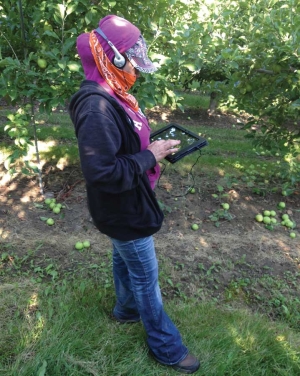It’s hot in the Pacific Northwest and expected to get even hotter as the region braces for a heat wave through the weekend and into next week.
“This is a global event for the cherry industry and we’ll have to see where it takes us,” said B.J. Thurlby, the president of the Northwest Cherry Growers. “Obviously, growers are going to use every tool in the box right now. But we haven’t dealt with this before, so we just don’t know what to expect.”
Growers will rely on under-tree sprinklers to reduce the temperature in the canopy and pick at night if they have the lighting to do it, Thurlby said.
The National Weather Service issued an excessive heat warning across Washington, Oregon and much of Idaho on Friday, June 25, for triple-digit temperatures predicted to stretch well into next week. Outdoor work should be scheduled for the early morning as much as possible, and everyone should be on the lookout for signs and symptoms of heat exhaustion and heat stroke, according to the warning issued by the NWS. Frequent rest breaks in shaded or air-conditioned environments can reduce the risk of heat-related illness.
Cherry and berry growers in the midst of harvest across the region already schedule early morning harvests to keep fruit and workers cool. But the increased heat could be accelerating fruit ripening in some places, at the same time that workers need to slow down to be safe in the heat — a problem without a clear solution.
“If it’s hot, there’s nothing we can do to cool,” said grower Adolfo Alvarez of Prosser, Washington.
For one thing, workers can only handle half a day of work, which slows down harvest, he said. Then, the cherries are ripening faster, giving him a double blow on the timing urgency.
Broadly, the cherry season has been picking up over the past week, after cool weather in early June slowed the harvest, according to a June 25 crop update from Northwest Cherry Growers.
“The temperature forecasts for most of our growing regions will push our orchards to hitherto unknown points for the month of June,” the organization said in the news release. “With so many orchards in different stages and at different elevations, we feel confident that this is but one more challenge that all of our growers must fight, and some will prevail.”
—by Kate Prengaman








Leave A Comment